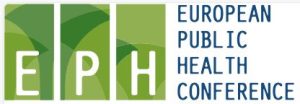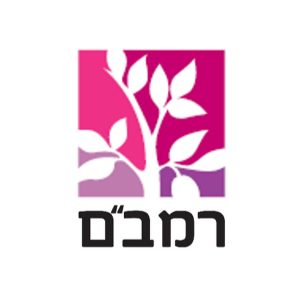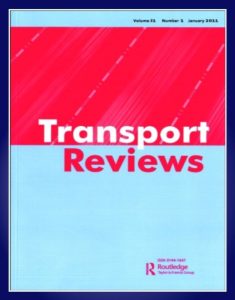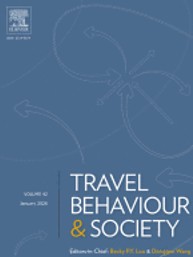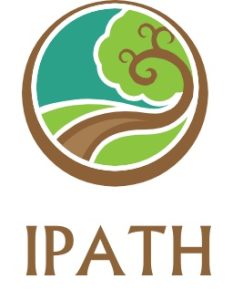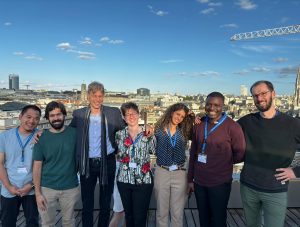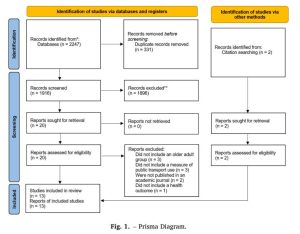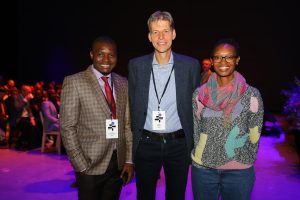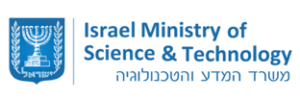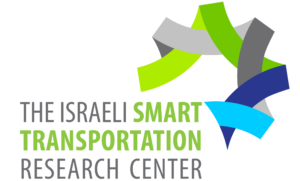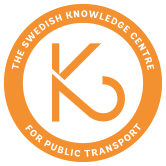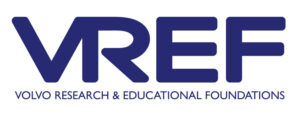The Fair Transport Lab is a lab in the faculty of Architecture and Town Planning in the Technion. It is headed by Prof. Karel Martens.
[su_content_slider] [su_content_slide class=””]
|
Omer Dilian presents in the European Public Health Conference
Lab member Omer Dilian presented his research in the 17th European Public Health (EPH) conference in Lisbon, Portugal. The EPH conference is one of the most important venues for public health research; Omer presented a recent systematic review about the links between public transport use and older adults’ health outcomes.
|
[/su_content_slide] [su_content_slide class=””]
 |
New Article: Workplace responsibility for employee mobility?Corporations and other employers are increasingly expected to contribute to societal goals, going beyond merely profit-making. In this paper, Yaara Tsairi and Karel Martens review whether sustainability reporting frameworks also expect employers to address the social and environmental impacts of employee mobility. Their findings show a strong focus in reporting frameworks on greenhouse gas emissions, while largely ignoring other forms of environmental pollution and social inclusion issues. They advocate for expanded reporting requirements, so that employers are encouraged to address the far-reaching negative impacts related to employee mobility. |
[/su_content_slide] [su_content_slide class=””]
| Omer Dilian leads successful bid for Rambam-Technion cooperation
The Fair Transport Lab has received a grant for a joint project with the Rambam Health Care Campus! The project, in cooperation with Dr. Avi Magid from the Rambam Health Care Campus and Prof. Nadav Davidovitch from Ben Gurion University, will investigate the transport related causes for no-shows to healthcare appointments, among vulnerable populations in northern Israel. |
| Announcing New Research: “Relations matter: towards relational egalitarianism in transport” in Travel Reviews
The Fair Transport Lab has published a new paper, “Relations matter: towards relational egalitarianism in transport” by Alessandro Piazzi and Karel Martens. The paper develops a relational egalitarian framework for transport justice, arguing that justice in mobility must focus on dismantling structural inequalities rather than simply redistributing resources. It identifies three core dimensions of relational inequality – hierarchies of power, standing, and esteem – and shows how these are embedded in governance, infrastructure, service delivery, evaluative practices, and the urban environment. By centering relational inequalities, the framework provides planners with clearer principles for diagnosing and correcting often-overlooked forms of discrimination, positioning transport planning as a key instrument for advancing social equality. Read the article here. |
| Announcing New Research: “Dignified transport: The case of paratransit” in Travel Behaviour and Society
The Fair Transport Lab has published a new paper, “Dignified Transport: The Case of Paratransit,” by Wambũi Kariũki and Karel Martens, in Travel Behaviour and Society. Using Nairobi, Kenya, as a case study, the research explores how everyday experiences of paratransit users and crews shape a “dignity ecosystem.” Through ride-alongs and interviews, the study identifies actions that promote dignity—like recognition, autonomy, and advocacy—as well as those that violate it, such as labelling or minimisation. The findings highlight how both societal forces and daily interactions influence these experiences and propose a dignity taxonomy to guide policymakers in creating more respectful, just, and locally relevant public transport systems.Read the article here. |
[/su_content_slide] [su_content_slide class=””]
| Omer Dilian wins best doctoral student abstract in the International Professional Association of Transport and Health (IPATH) annual meeting 2025
Lab member Omer Dilian presented his research, titled “If I have to use the bus, I’m telling you, I’ll take an anxiety pill” |
[/su_content_slide] [su_content_slide class=””]
| Eight Lab members at the Nectar Conference
Last July, a large delegation of the Fair Transport Lab participated in the Nectar Conference, the bi-annual meeting of the Network on European Communications and Transport Activities Research. Eight (!) of the lab’s members were accepted to present their research at the conference, one of the most significant academic venues for transport research. The projects presented covered diverse topics, including transport justice in Sub Saharan Africa, measurement of travel problems, and the mobility of disadvantaged groups. |
[/su_content_slide] [su_content_slide class=””]
|
Karel Martens gives lecture on AI and transport justice The Mechanical Engineering Department of Eindhoven University of Technology, in cooperation with Eindhoven Artificial Intelligence Systems Institute, invited Karel Martens to give a talk about the relevance of AI and mathematical models for promoting justice in transportation. Building on his philosophical perspective on transport, Karel called on the audience to develop novel analytical and mathematical tools to identify transport network improvements that can deliver sufficient accessibility to as many people as possible within a given budget. |
[/su_content_slide] [su_content_slide class=””]
|
New article: Public transport use linked to older adults’ health?
Mobility is one of the most important aspects of healthy ageing, known to be related to various health benefits. In a scientific paper recently published in the Journal of Transport and Health, Omer Dilian, Karel Martens and partners from BGU and Ghent University review the existing evidence for links between public transport use and older adults’ health.
|
[/su_content_slide] [su_content_slide class=””]
| Karel Martens interviewed in Jeff Wood’s STREETBLOG Podcast
Karel Martens was interviewed by Jeff Wood in an episode for Taking Headways, a podcast of STREETBLOG, an American transport oriented blog and podcast. In the episode, Martens discussed the limitations of the current transport engineering systems and proposed a new way for policy makers to measure the success of their policies. |
[/su_content_slide] [su_content_slide class=””]
| Karel Martens gives keynote lecture in VREF Global Summit
In may 2025, Prof. Karel Martens gave a keynote lecture in the VREF Global Summit on transport and mobility research in Gothenburg on “Imagining transition trajectories towards a fair transportation system”. Along with Prof. Martens, PhD candidates Chebe Polycap and Wambui Kariuki also participated in the VREF Global Summit. |
[/su_content_slide] [/su_content_slider]
We are deeply grateful to the financial support provided by:


